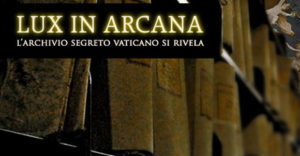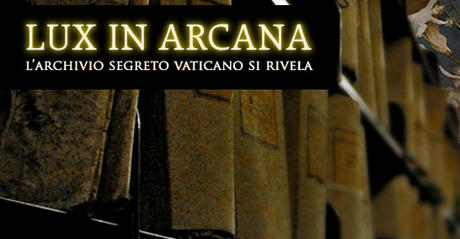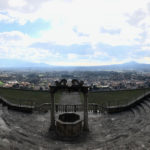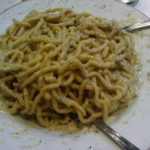The Capitoline Museums in Rome are preparing to host the last days of this historically unprecedented, high-profile event, the exhibition Lux in Arcana.
The event has been organized on the occasion of the 4th centennial of the foundation of the Vatican Secret Archives, and its title contains the event’s true essence: the light that enters in the most remote corners of the Archive (lat. – lux in arcane) and renders accessible a historic and sometimes unedited reality, and which can only be conceived by benefiting directly from the documents in this archive. In fact, the main object of the event is to explain the function and characteristics of the Pontifical Archives.
The way of presentation that the Capitoline Museums have chosen for this unprecedented event, mainly consisting of a collection of antique documents of incalculable historic and cultural value, is certainly modern: in collaboration with Accenture – a management consulting and technology company – has been developed an official free App for the exposition, which serves as multimedia support for further deepening the understanding of the documents that are contained in the more than 85 linear km of the Vatican Secret Archives. The mobile application actually allows the user to visualize each element present in the exposition; the specification sheets, multimedia contents, photographs, pictures and further contents.
Furthermore, a video for tourist and the curious has been made available on YouTube, which shows a video trailer presenting the exposition. This and all other events on the agenda can be found on the Facebook page that has been dedicated to the exposition event, which represents a true multimedia instrument for accessing the exposition in an absolutely modern way.
The exposition opened February 29th and will remain open until September 9th, 2012. The experience begins in the Sala degli Orazi e Curiazi, where the principal types of documents conserved in the Pontifical Archives are displayed: certificates and edicts, goods receipts and letters, papal registers, codes, procedural records and forms that have been conserved from the 8th to the 21st century A.C. and which have been realized on the most varied types of writing surfaces, such as parchment, paper, tree bark. The exposition then continues through the Palazzo dei Conservatori and in the rooms of Palazzo Clementino Caffarelli.


















